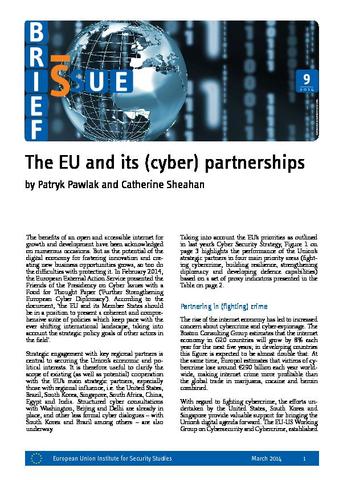You are here
The EU and its (cyber) partnerships

The benefits of an open and accessible internet for growth and development have been acknowledged on numerous occasions. But as the potential of the digital economy for fostering innovation and creating new business opportunities grows, so too do the difficulties with protecting it. In February 2014, the EEAS presented the Friends of the Presidency on Cyber Issues with a Food for Thought Paper (‘Further Strengthening European Cyber Diplomacy’). According to the document, ‘the EU and its Member States should be in a position to present a coherent and comprehensive suite of policies which keep pace with the ever shifting international landscape, taking into account the strategic policy goals of other actors in the field’.
Strategic engagement with key regional partners is central to securing the Union’s economic and political interests. It is therefore useful to clarify the scope of existing (as well as potential) cooperation with the EU’s main strategic partners, especially those with regional influence, i.e. the United States, Brazil, South Korea, Singapore, South Africa, China, Egypt and India. Structured cyber consultations with Washington, Beijing and Delhi are already in place, and other less formal cyber dialogues – with South Korea and Brazil among others – are also underway.